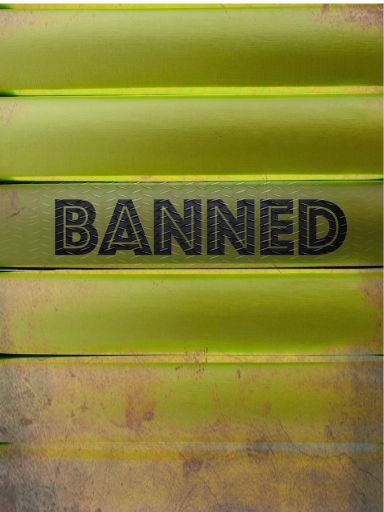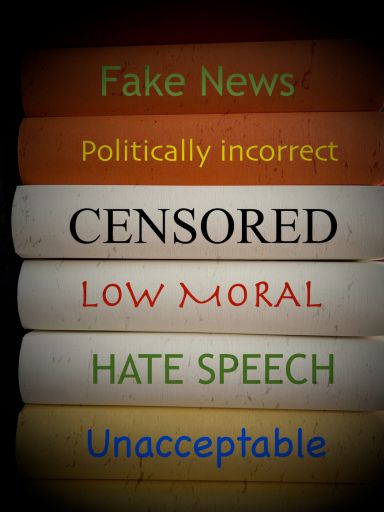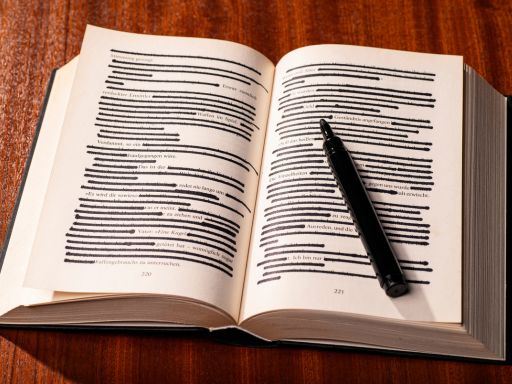A while back, I wanted to publish a new audiobook version of a classic title from the public domain. The story was great, the author was beloved by many and considered to be an equal rights advocate from her time. The only problem was, there was one instance in the book where she used an outdated (and now considered derogatory) term to describe a person from a particular ethnic group.
Having literature accessible has always been extremely important to me, having been raised by progressive parents, and also remembering clearly an episode of Family Ties, a sitcom from the 80s, where the youngest child, “Jennifer” risked suspension by choosing to do a book report on “Huckleberry Finn”, a banned book at her school. The two part episode was noteworthy enough that the Washington Post editors posted an opinion piece about it.
“Huckleberry Finn” has been on many lists of banned books in U.S. schools and libraries over the years partially due to the language in the book, even though the merit of the book’s theme arguably outweighs the harshness of the language.

The same can be said about many books written over a hundred years ago, and banning them due to the author using the language of their time would undoubtedly be unfortunate. After all, if we don’t learn from history, we are destined to repeat it.
“Huckleberry Finn” notoriously has many instances of offensive language, but what about books with just an occasional instance of what is now considered outdated language, or even a slur? Can’t we just change the word to something more acceptable?
This is the question that came to mind when I was thinking about publishing a classic title as an audiobook a few years ago. It had one instance of one word, which was commonly used at the time to refer to a particular ethnic group, but is considered to be highly offensive today. My first thought was that most likely, nobody would notice if I replaced the word with something more acceptable. But something told me I should get another opinion.
So I reached out to a couple of groups on social media. One was on Reddit, which is somewhat anonymous, and the other was a group of local friends in my progressive city of Seattle, who tend to consider themselves to be “social justice warriors”. Although some commenters said they wouldn’t have any issues with changing the word, quite a few took the time to write a long comment about it being a bad idea. The main consensus was that censoring even one word is still censorship. After reading these comments, I started thinking a bit deeper about the topic, and came up with the following:
#1- If the word is offensive enough for me to want to change it, book groups may consider it important enough to have a discussion about it. Those who listened to the audiobook rather than reading the original text will be left out of the conversation.
#2-Linguists and scholars use text from historic books to learn about etymology and history. By providing a more modern word in place of the words that were actually used at the time, it is providing a false narrative about the language and the way certain ethnic groups were treated.
#3 The new audiobook being published has the same title and is attributed to the same author as the original text. Crediting the author for words they didn’t write is dishonest and confusing. If we leave the language as-is, we may have a different opinion of the author than we would if their slurs or outdated words are censored. I think there is enough “glorifying of the olden days” in history classes. We don’t need to do it in literature as well!

I ended up not doing an audiobook version of that particular book, but I did decide that if I were to publish any other public domain titles that had problematic language, I would not change the text to make it less harsh, but instead would include a disclaimer in the audiobook blurb. Disney has been including similar disclaimers about some of their older movies: and Whoopie Goldberg gave one in the introduction of the Tom and Jerry Spotlight Collection.
Thanks for reading!
Rebecca H. Lee- Audiobook Narrator
Visit my website at https://becksvoice.com
Follow me on social media!
https://www.linkedin.com/in/rebecca-h-lee-audiobook-narrator/
https://www.instagram.com/beckcentric/




Hi, Rebecca! Thanks for writing this terrific and thought-provoking article!
As you know, narrating and producing public domain audiobooks is my passion. One wonderful thing about public domain works is that we have the freedom to change the author’s words! I make the decision on a book-by-book basis.
I’ve updated some words to reflect more current usage.
I’ve also restored real women’s first names in non-fiction texts where they are referred to as Mrs. HusbandName. They deserve to have and be known by their own identities and accomplishments separate from their husband.
In one case, I surgically removed a couple of descriptive sentences from a fictional story. The author inserted her opinion demeaning certain women. I didn’t share her opinion and refused to speak those hateful words. The story flowed perfectly well without them.
You raise valid points about the importance of the author’s words reflecting the time period in which the book was written. The author’s words still exist in the original print edition, which is available to scholars and linguists.
I haven’t used a disclaimer yet. However, I have one project in mind that would require such extensive editing to eliminate the problematic language that I will leave it as is and add the disclaimer.
I hope these thoughts are helpful.
Cordially,
Karen Commins
KarenCommins.com
https://bit.ly/ComminsPDHQ My Public Domain Narration Headquarters
I anticipated there would be differing opinions on this. Thank you for sharing your thoughts! I personally think that it would be great if when changes are made, the book came with some sort of additional material (either in the audiobook itself or on a website somewhere that can be referred to at the end of the audiobook). Hmm. I only received your comment today and it is perfect timing because I am going to be directing a narrator soon on a public domain project. She sent me the manuscript and it is full of a certain word that is pretty much taboo today. Perhaps there is an option of two types of disclaimers: 1. The type I mentioned, and 2. One that explains that some words were changed and where the original manuscript is available.
This is the first comment I have responded to so I hope you are able to see it!